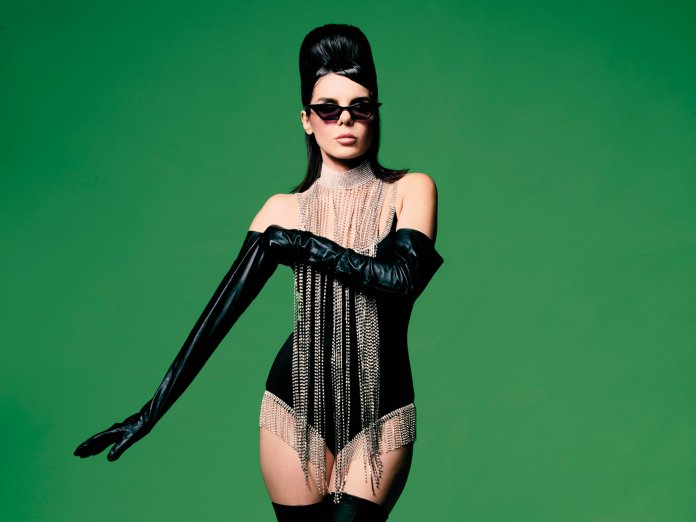Turkish psych dervish who wants her listeners to do more than just dance, in our FEBRUARY 2023 issue of Uncut, available to buy here.
Growing up watching Xena, Gaye Su Akyol has become Anatolian rock’s warrior princess, armoured in lavish silver costumes as she leads her band of gold-masked musicians towards the outer limits of Turkish psychedelia, collecting fans including Iggy Pop along the way. She is also playfully sexual and queer-supportive, pushing the boundaries of acceptable female behaviour in Erdogan’s Turkey. The cover of her fourth album, Anadolu Ejderi, casts her as the titular Anatolian Dragon, with a serpent’s tongue in a burning world.
Uncut meets Akyol in her apartment in Kadıköy, the Istanbul neighbourhood on the Bosphorus’s Asian side which has become a secular, bohemian redoubt from Erdogan’s reach. It’s a home filled with the passions of this artist’s daughter, from Bedri Rahmi Eyüboğlu’s Anatolian folkloric prints to an Iggy action doll. We talk in the music room where Anadolu Ejderi’s vocals were taped. The album’s a decisive move forward from the
surf-inflected dreamworld of its 2018 predecessor, İstikrarlı Hayal Hakikattir, encompassing psychedelic dance bangers and “Biz Ne Zaman Düşman Olduk”, a spectral, trip-hoppy ballad. “I don’t care about genres,” Akyol explains, “I’m thinking about Turkish psychedelia with African beats.”
Though steeped in Anatolian rock’s liberated golden age – prior to its crushing in 1980’s military coup – Akyol prefers the future to the past. “There were retro-futuristic ideas in Turkish psychedelic records in the ’70s too,” she insists. “You can see it in Barış Manço’s album 2023 [made in 1975]”. Akyol’s own lyrics reflect her fascination with quantum theories, where past, present and future coexist.
Anatolian rock is experiencing a global revival now, reflected in the Grammy-winning success of the Netherlands-based Altın Gün. Akyol, though, warns that new bands need to respect the music’s embattled soul. “One of the bands who just cover the old songs said, ‘We are not political, we’re just trying to make people dance,’” she snorts. “Go and make disco music, come on! This is not the right place. You can see the political events from songs which were written in the ’60s and ’70s. There was a deep culture then, very real music combining the tradition of the Anatolian region’s original poets with rock. Musicians like Cem Keraca had to leave their mother country for making this music – first to jail, then Germany. Now you are taking their songs to make people dance at festivals. I don’t respect that.” Akyol is equally resistant to being labelled a world music star: “I hate that. Hunting cultures is so colonial and ugly.”
Akyol’s western influences include Nirvana, first heard when she was nine. “They showed me a door that I never knew existed,” she says. “And it magically opened, and I was inside.” The late Mark Sandman’s band Morphine were equally revelatory. “Morphine was the biggest inspiration for my music,” she considers. “They were authentic, dark and jazzy, sounding like something from another planet. I can see the real pain of the world in their music.” A collaboration with Morphine saxophonist Dana Colley is ongoing.
Anadolu Ejderi’s final track, “İçinde Uyanıyoruz Hakikatin” (“We Are Waking Up In Reality”), is a huskily sung, haunting hellscape of Istanbul’s woes, identifying with Syd Barrett and Brian Jones, two dissolute rock stars who flamed out. By contrast, Akyol is fearlessly facing her future.
Gaye Su Akyol’s Anadolu Ejderi is out now.



